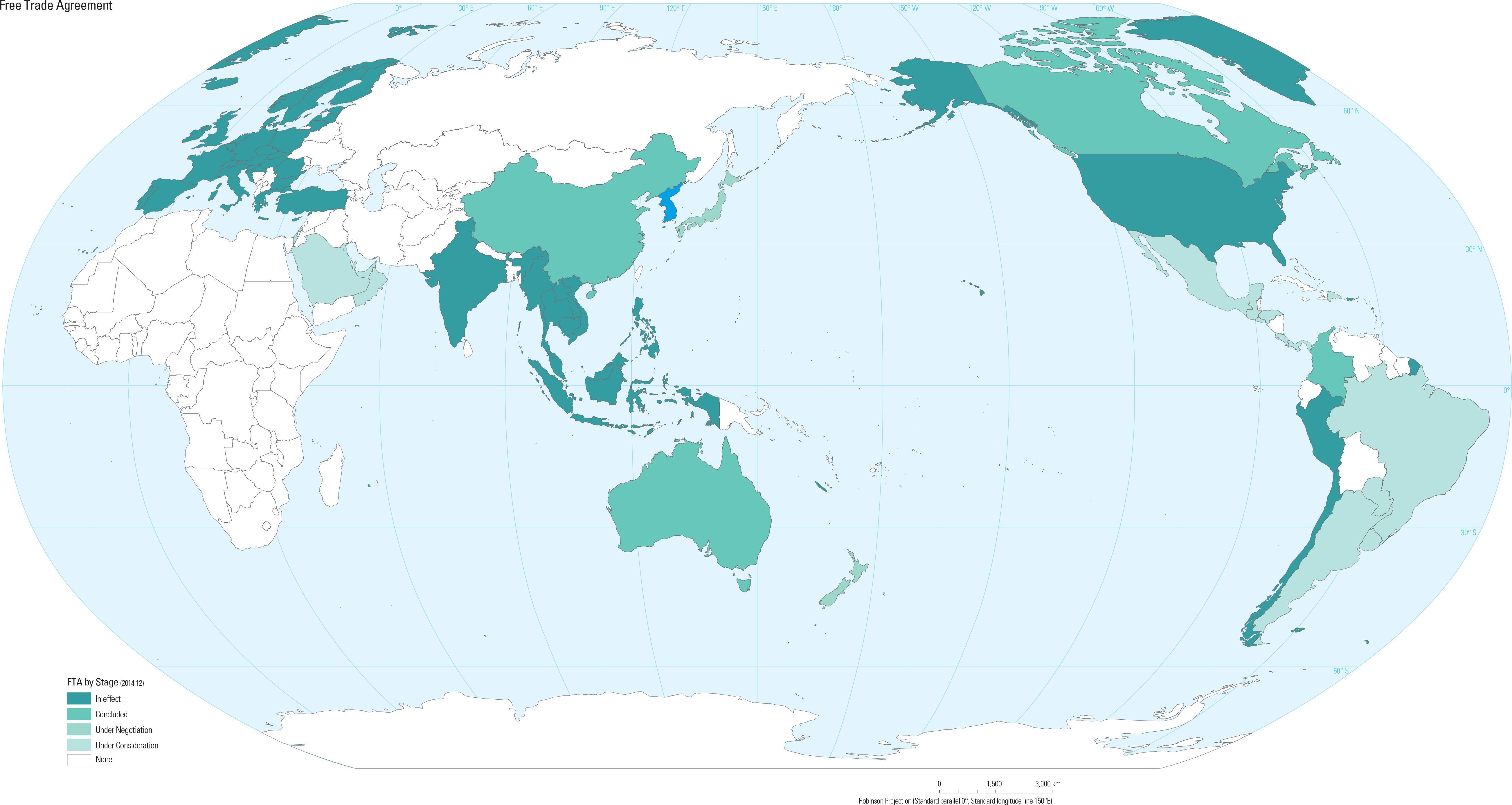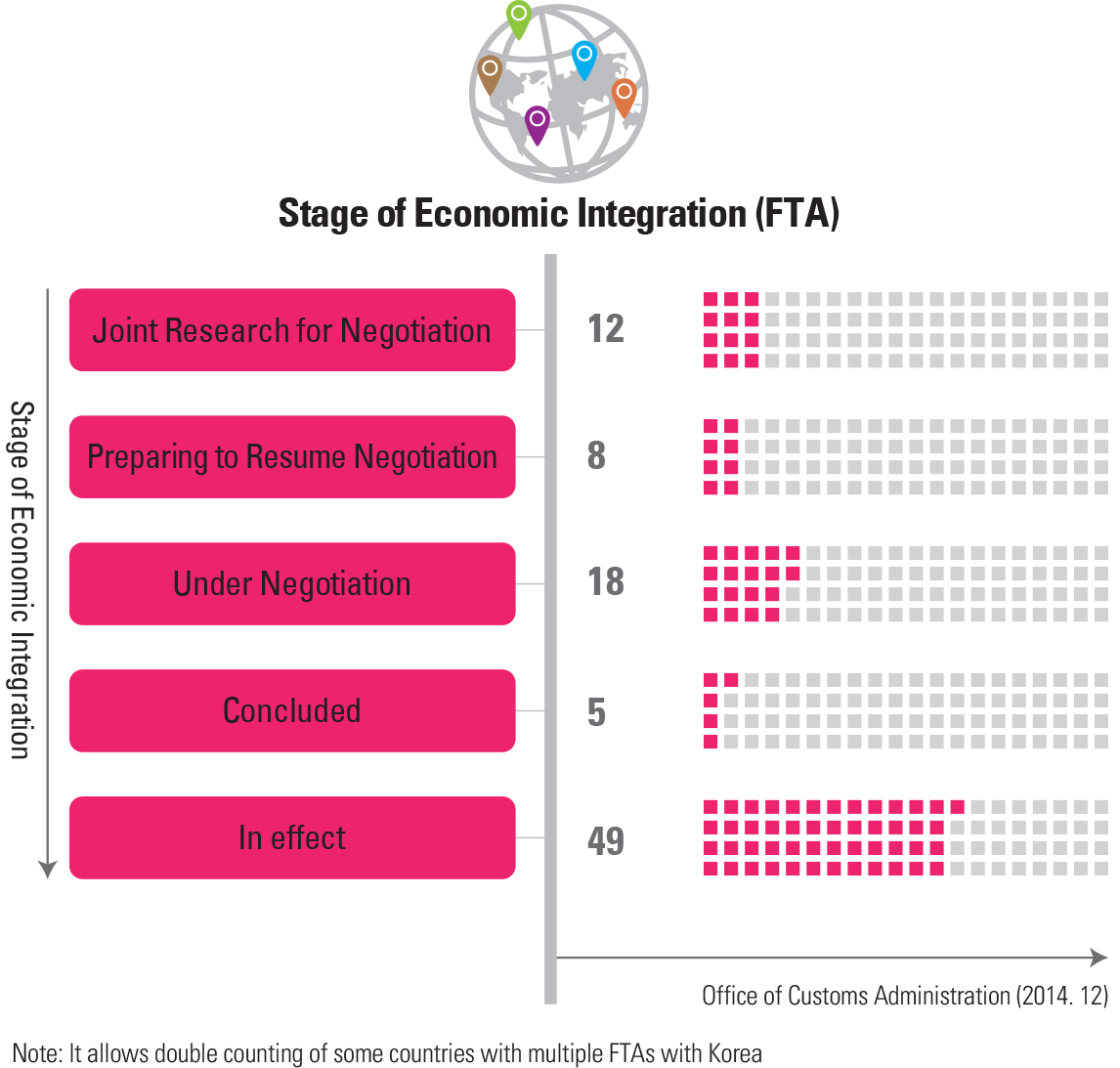After the 1997 Asian financial crisis, the Korean government began to initiate the bilateral or regional Free Trade Agreement (FTA) process to complement the multinational trade system. They believed that the FTAs would help Korea to respond to the global expansion of regional economic blocs externally and would help mitigate the sluggish domestic economic growth stemming from the aging of the Korean population, the lowering birth rate, and the unbalanced distribution of wealth and population within the country.
The Korean government began to negotiate its first FTA with Chile, and after five years an agreement was reached in February 2003. Subsequently, Korea reached similar agreements with Singapore and the European Free Trade Association (EFTA) in 2005. These are in effect now. As of 2014, FTAs are in effect between Korea and the ten countries in the Association of Southeast Asian Nations (ASEAN), India, 28 countries in the European Union (EU), Peru, the US, Turkey and Australia. The FTAs with Columbia, Canada, China, New Zealand and Vietnam have been agreed to, but are not yet in effect. FTAs are also under negotiation with Indonesia, Korea-China-Japan, the 16 countries in Regional Comprehensive Economic Partnership (RCEP). The Korean government has prepared to resume negotiation for an FTA with Japan, Mexico, and the six countries in the Gulf Cooperation Council (GCC). In addition, the Korean government has conducted research for FTAs with 12 more countries.
The map presents the regional collaboration systems that Korea has participated in including the Asia Pacific Economic Cooperation (APEC), ASEAN Regional Forum (ARF), Asia-Europe Meeting (ASEM), Forum for East Asia - Latin America Cooperation (FEALAC), Asia Cooperation Dialogue (ACD), East Asian Summit (EAS), the G20 Summit, and the United Nations Economic and Social Commission for Asia and the Pacific (UN ESCAP). Korea is one of the founding members of APEC, which was established in 1989. Korea has also participated in ARF, which was established in 1994 to keep peace in Asia and the Pacific regions after the Cold War. Korea has also joined ASEM, which was formalized in 1996 with the goal of helping to forge closer economic relationships between Asia and Europe. Through ASEM, Korea has contributed to economic, social, political and cultural collaborations. As a member of FEALAC, which was established in 1999, Korea has promoted mutual understandings between East Asia and Latin America. Korea has also worked closely with China, Japan, and ASEAN member countries through the EAS in order to build an East Asian community. Korea joined the ACD to facilitate international cooperation among the Asian countries. Korea has also participated in the G20 summit, whose members include the G7 and Australia, with the intention of helping to restore international order after the financial crisis triggered by the U.S. subprime mortgage sector. Korea has also participated in the UN ESCAP, which was established after the Word War II.


